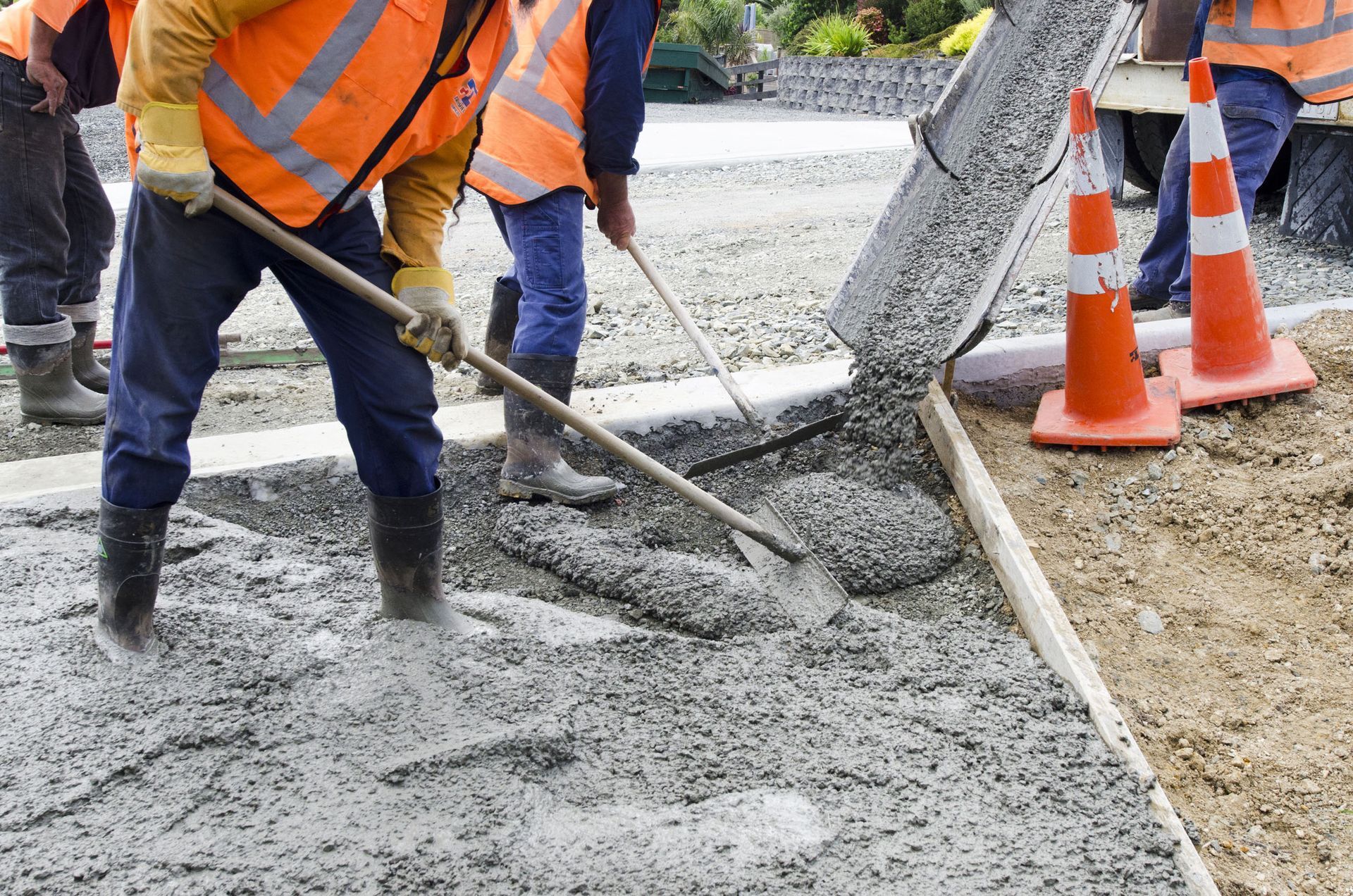Key Questions to Ask When Hiring Construction Contractors
Hiring the right construction contractor is one of the most critical steps in ensuring the success of your building project. From small renovations to large-scale developments, the quality, reliability, and expertise of your contractor can significantly influence the outcome. Choosing a contractor involves more than simply comparing bids; it requires a detailed assessment of their skills, experience, financial stability, communication abilities, and project management methods. The right contractor not only completes the project efficiently but also minimizes potential setbacks, safeguards your investment, and ensures satisfaction throughout the process. This guide outlines the essential questions and considerations to help you select competent construction contractors who are a good fit for your specific project needs.
What Are the Contractor’s Qualifications?
A thorough evaluation of a contractor’s qualifications is a fundamental step in selecting the right professional for your project. Start by verifying licensing, certifications, and years of experience in the industry, as these factors indicate competence and legal compliance. Specialized expertise in particular construction areas can be invaluable for projects requiring precision, and reviewing a contractor’s portfolio of previous projects provides insight into their skill level and work quality.
Equally important is assessing the credentials of subcontractors and staff. Many construction projects involve a team, and ensuring that all individuals are certified and experienced enhances safety, efficiency, and quality outcomes. Licensed subcontractors with strong track records contribute to a more reliable workflow and long-term project success.
Additionally, consider the contractor’s familiarity with current market conditions and industry trends. According to Global Market Insights, the construction equipment rental market is expected to grow at a compound annual growth rate of 4% from 2023 to 2032. Contractors who adapt to evolving trends are more likely to use modern equipment and practices, demonstrating both skill and innovation. Asking about ongoing training and professional development can further gauge their commitment to maintaining high standards.
How Financially Stable Is the Contractor?
Financial stability is a key factor in determining whether a contractor can reliably complete your project. Contractors with sound finances are less likely to encounter disruptions, ensuring steady progress and adherence to deadlines. Inquire about bonding capacity to confirm that the contractor can fulfill contractual obligations even under unforeseen circumstances. Adequate insurance coverage is another essential aspect, protecting you and your project from potential liabilities. Financial references can provide additional insight into the contractor’s reputation and management practices.
Understanding payment terms and transparency is equally important. Clear payment schedules and budget handling prevent misunderstandings and promote a positive working relationship. Discussing how a contractor manages project costs, including unexpected expenses, ensures upfront clarity and demonstrates financial accountability.
Given today’s fluctuating market conditions, financial prudence is vital. Rising equipment rental costs and supply chain variations can impact project expenses. Contractors who anticipate and plan for these fluctuations demonstrate reliability and resilience. By examining their approach to financial management, you can better judge whether they will maintain quality and project timelines without compromising budget integrity.
How Well Does the Contractor Communicate?
Effective communication is essential to keeping a construction project on track. Evaluate how contractors interact with clients and whether they can adapt to your preferred communication channels, such as email, phone, or in-person meetings. Timely responses indicate dedication and reliability, while consistent updates help avoid misunderstandings.
Regular project updates are a critical aspect of communication. Contractors should provide detailed progress reports, highlighting milestones, challenges, and changes. This transparency fosters trust and allows timely interventions if issues arise. Additionally, understanding how a contractor handles conflict resolution is vital; effective mediation strategies can prevent delays and disruptions. Client references are valuable resources to assess firsthand the contractor’s communication practices.
Modern tools also play a role in communication efficiency. Digital platforms and software enable real-time collaboration and updates, which is increasingly important as projects grow in scale and complexity. As the construction equipment rental market expands, contractors integrating technology to streamline communication are better positioned to manage projects effectively. Evaluating communication skills ensures you select a contractor capable of maintaining clarity, responsiveness, and collaboration throughout the project.
What Is the Contractor’s Project Management Approach?
A contractor’s project management style directly affects efficiency, cost, and quality. Investigate the tools and technology they employ, such as project management software, to monitor schedules, budgets, and workforce deployment. Efficient timeline management and task prioritization are crucial for preventing costly delays and maintaining overall project integrity.
Resource management is another essential component. A contractor’s ability to allocate and optimize human, material, and financial resources impacts cost-effectiveness and project flow. Strong risk management practices, including contingency planning for unexpected challenges, further enhance reliability. Quality control procedures ensure all work meets industry standards and client expectations.
Adapting to industry trends, such as the growth in equipment rental, is also relevant. Contractors who are agile in adjusting to changing market demands can utilize resources more effectively, keeping projects on track. Modern project management practices, including digital integration and agile methods, reflect a contractor’s ability to deliver results efficiently. Evaluating these practices allows you to select a contractor prepared to meet project goals while maintaining flexibility and accountability.
What Is the Contractor’s Reputation and Track Record?
A contractor’s reputation is one of the most reliable indicators of performance and trustworthiness. Begin by reviewing client testimonials and online reviews to gain insight into their strengths, weaknesses, and overall satisfaction levels. Reputable contractors often maintain a professional presence across review platforms, demonstrating credibility and reliability.
Confirming compliance with local, state, and federal regulations is essential. Contractors who adhere to legal standards reduce project risk and support safe, high-quality outcomes. Industry awards and recognitions further demonstrate respect and expertise, highlighting contractors committed to excellence. References from past projects provide an opportunity to verify the contractor’s track record, particularly regarding problem-solving, timeliness, and project delivery.
Additionally, consider how contractors stay current with evolving industry trends. Contractors who adopt innovative practices, including modern equipment and project management approaches, show a commitment to excellence and long-term professional development. Choosing well-regarded construction contractors with strong reputations increases the likelihood of a successful project and reduces risk.
What Should You Know About the Contract Terms?
A thorough understanding of contract terms is crucial for a successful working relationship. The contract outlines the scope of work, deliverables, and expectations, serving as a blueprint for project execution. Clarify the change order process to understand how modifications will be managed, preventing disputes over costs or deadlines. Similarly, the dispute resolution clause ensures that conflicts can be addressed efficiently, minimizing project interruptions.
Warranty and maintenance terms protect your investment, covering repairs or defects that may arise after project completion. Clearly defined termination clauses provide security and clarity for both parties, allowing projects to end with minimal loss if necessary. Contractors who clearly explain contract terms, including adjustments for market fluctuations such as equipment rental costs, demonstrate business acumen and foresight. By scrutinizing contracts, you can optimize costs, mitigate risks, and ensure a smooth project from start to finish.
Selecting the right construction contractors requires careful evaluation of qualifications, financial stability, communication skills, project management approaches, reputation, and contract terms. By asking the right questions and conducting thorough assessments, you can identify a contractor capable of delivering high-quality results on time and within budget. The right contractor ensures a smoother process, reduces risk, and safeguards your investment, making the difference between a successful project and a frustrating experience. Armed with this knowledge, you are better equipped to make informed decisions and achieve your construction goals confidently. Ready to bring your construction project to life? Contact Swift Construction & Steel LLC today to partner with experienced construction contractors who deliver quality, reliability, and results you can trust.



Share On: